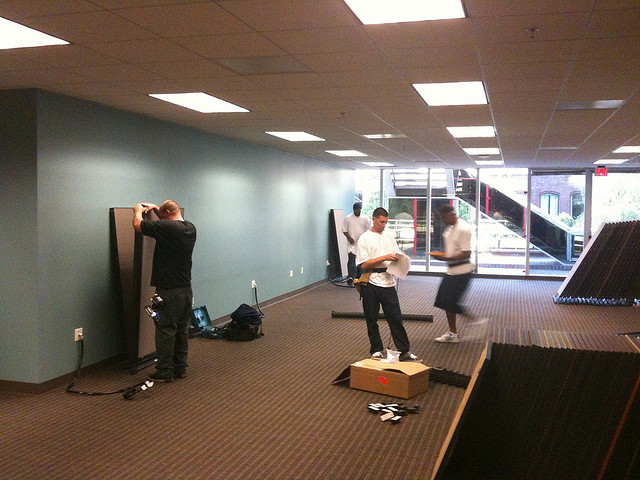Moving on: What happens when an office closes for the last time?
For any number of reasons, companies the world over will opt at some point to close their operation in a particular office, be it to move elsewhere or simply because they are going out of business.
Be it Disney’s decision to close its Pixar studio in Vancouver to focus everything under one roof, or the BBC’s move from Broadcasting House to an altogether more modern office space, the transition between one company vacating an office and another coming in can be a tricky one.
So what does happen when an office closes for the last time? For cleaning contractors like Nviro, it means hard work and a quick turnover to make sure businesses go through as little interruption as possible.
After the move out
When any company leaves a commercial space they’ve been working hard in for the past few years, it can look like a proverbial pig sty, with paper littered everywhere and discarded electronics all over the place.
For the cleaning companies, this means a lot of hard work. The place needs to look in tip-top shape for the next company to come in, after all.
The first job is to clear all of the mess, and this will come down to sorting of things into piles. Recyclables, rubbish and things that should be kept should all be separated before anything is thrown away.
One the rubbish is all cleared, though, the next stage is to perform the deep clean. Kitchen spaces have to be sparkling, bathrooms must be bright and shiny and the carpets need to be stain free.
Communication can also be key at this stage. If a previous tenant has gone, leaving behind things that it looks like they might need, cleaners should make sure to put them to the side and contact the firms.
It can be a tough job, but in order to make sure a new tenant takes the property on board, and is happy when they do so, it takes a lot of hard work from cleaning contractors.
After the move in
The work won’t stop when the next company moves in either, but this time it will all be about compromise, working together and deciding on a schedule.
For example, does a company need a large amount of paper disposed of at a certain time of the day? Do they work obscure hours? Are there people who are always there early or late and cannot be disturbed?
These are all questions that need to be asked before decisions are made on the timetable of cleaning. What worked for one company with bins being emptied at a certain time of the day and the toilets cleaned at another may not work for the next firm.
It is all about flexibility on both parts. For cleaners, they need to be open to the wants and needs of a new company, working to help them feel happy in their new workspace, while the firms themselves also need to be open to negotiation in order to make sure they are not stretching cleaners beyond reason.
It can take time to develop a strategy that works well for both parties, but taking time out to arrange short meetings and having a catch up here and there can make all the difference and make everyone’s life that little bit easier.



